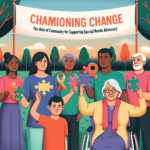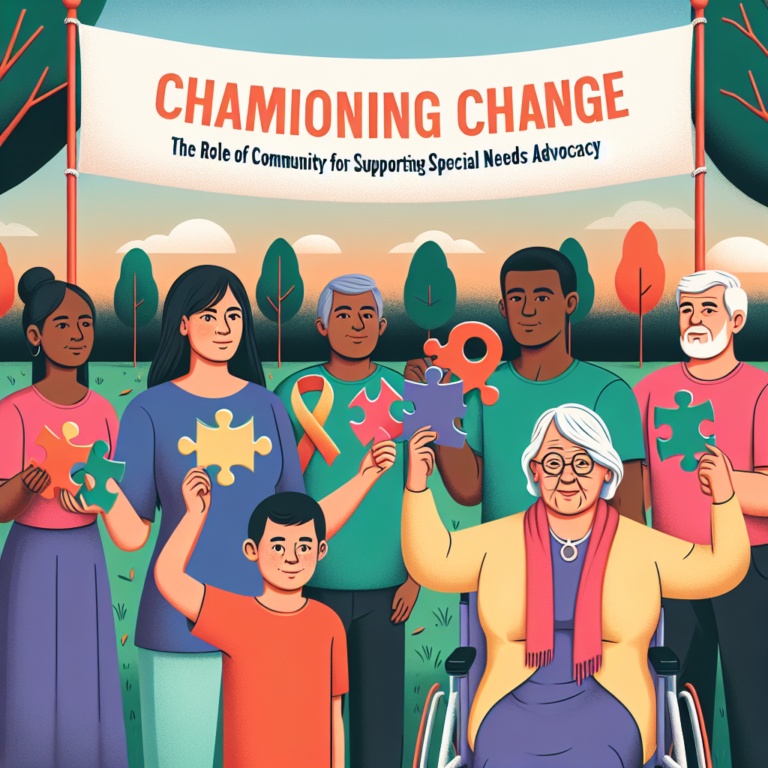Breaking the Mold: The Psychological Impacts of Non-Traditional Gender Roles
Introduction
In an era where identity and self-expression take center stage, reshaping traditional gender roles is not merely a social experiment; it’s pivotal for emotional well-being and psychological health. Breaking the Mold: The Psychological Impacts of Non-Traditional Gender Roles illuminates the significant effects these evolving definitions have on individuals and society at large. As we journey through this exploration, we’ll uncover new perspectives and provide actionable insights, all while urging society to embrace this transformative shift.
Understanding Non-Traditional Gender Roles
What Are Non-Traditional Gender Roles?
Non-traditional gender roles defy long-standing societal norms that dictate how individuals should behave based on their gender. Traditionally, males have been expected to be strong, assertive, and the primary breadwinners, while females have been relegated to nurturing, submissive roles. However, these definitions are changing. Breaking down these molds allows for a richer tapestry of human experience, validating personal choices that aren’t confined to binary expectations.
The Impact of Gender Role Conformity
Social conformity pressures individuals to conform to established gender norms, often resulting in emotional distress or identity crises. For instance, men who adhere strictly to traditional norms may face challenges expressing vulnerability, leading to increased rates of anxiety or depression. Conversely, women confined to nurturing roles may experience feelings of stagnation or dissatisfaction.
Table 1: Psychological Outcomes of Conformity vs. Non-Conformity
| Gender Role Conformity | Psychological Impact |
|---|---|
| High Conformity | Anxiety, Depression, Low Self-esteem |
| Low/Non-Conformity | Higher Self-esteem, Better Emotional Health |
The Benefits of Breaking the Mold
Enhanced Emotional Intelligence
Case Study: The Resilient Male
A study published in the Journal of Masculinities examined the experiences of a group of men who embraced emotional openness and vulnerability. The results indicated that these men reported higher levels of emotional intelligence and stronger interpersonal relationships. They challenged traditional norms by expressing feelings and seeking support, ultimately leading to improved mental health.
Analysis: This case demonstrates that males who seek to break the mold often experience enhanced emotional well-being, showcasing the benefits of deviating from traditional gender roles.
Fostering Authenticity
Individuals who break free from conventional gender roles are empowered to pursue their authentic selves. This authenticity fosters a sense of belonging, acceptance, and fulfillment.
Case Study: Women in Leadership
A 2019 study by the Harvard Business Review highlighted female leaders who defied traditional gender expectations. The results showed these women not only achieved professional success but also reported higher life satisfaction and psychological well-being compared to women who adhered strictly to traditional roles.
Analysis: The study indicates that breaking traditional molds in leadership yields benefits for both individuals and organizations, enhancing overall morale and productivity.
Navigating Social Challenges
Societal Pressures and Stigmas
Despite the positive impacts of Breaking the Mold: The Psychological Impacts of Non-Traditional Gender Roles, societal resistance is an unfortunate reality. Non-conformists often face stigma and criticism. For example, stay-at-home dads may experience judgment while attempting to validate their roles in a still patriarchal society.
Strategies to Combat Societal Pressures:
- Education: Promoting awareness of non-traditional roles can shift public perception.
- Community Support: Creating spaces where individuals can share experiences fosters solidarity.
- Media Representation: Including diverse gender roles in media helps normalize these experiences.
Table 2: Strategies to Combat Stigma
| Strategy | Description |
|---|---|
| Education | Workshops, seminars, and discussions on gender roles |
| Community Support | Support groups and social networks |
| Media Representation | Shows and campaigns featuring diverse gender roles |
The Psychological Benefits of Non-Traditional Gender Roles
Improved Interpersonal Relationships
Diverse gender roles can lead to healthier relationships. Non-traditional roles push men and women to empathize more with one another, fostering a more communicative and understanding dynamics.
Case Study: The Gender Role Reversal in Parenting
A longitudinal study examining families where fathers took on primary caregiving roles indicated improvements in family cohesion, decreased parental stress, and increased satisfaction among both partners. These families outperformed traditional setups in terms of conflict resolution and emotional support.
Analysis: This case clearly illustrates how embracing non-traditional roles in parenting creates a more supportive and emotionally intelligent family environment.
Increased Psychological Resilience
Individuals who embrace non-traditional gender roles often develop better coping mechanisms. Resilience can stem from the realization that gender does not dictate capability or worth.
Case Study: Non-Binary Experiences
A research project focused on non-binary individuals found that those who were open about their identities reported greater resilience to social pressures, reflecting a strong sense of self and community support.
Analysis: This resonates with the concept that breaking from societal molds can bolster psychological resilience by fostering adaptability and self-acceptance.
Overcoming Barriers to Acceptance
The Role of Education and Advocacy
Advocating for awareness and understanding can forge pathways to acceptance. Initiatives focusing on gender diversity in schools and workplaces can foster an environment where non-traditional roles flourish.
Practical Steps for Schools and Workplaces:
- Diversity Training: Implement mandatory workshops.
- Inclusive Policies: Formulate guidelines accommodating gender diversity.
- Role Models: Promote visibility of successful individuals in non-traditional roles.
Strategies for Personal Growth
Cultivating Emotional Awareness
Recognizing one’s own biases and emotional triggers is essential. Individuals can foster emotional awareness by:
- Journaling: Reflecting on their feelings and experiences helps clarify emotions.
- Mindfulness: Practicing mindfulness aids in understanding emotional responses.
Building Support Networks
Creating a strong support network is vital. This can include:
- Supportive Friends and Family: Surrounding oneself with understanding individuals.
- Community Groups: Joining organizations that celebrate diversity in gender roles.
Conclusion
Breaking the Mold: The Psychological Impacts of Non-Traditional Gender Roles highlights the transformative journey of individuals defying societal norms. As we embrace diverse identities and gender expressions, we cultivate healthier emotional landscapes and stronger communities. The future lies in nurturing authenticity and challenging the status quo, allowing everyone to flourish.
Call to Action
Embrace your unique path, support those in non-traditional roles, and be an advocate for psychological well-being in your community. Breaking the mold is not just about redefining roles; it’s about redefining lives.
FAQs
1. What are non-traditional gender roles?
Non-traditional gender roles are identities and behaviors that do not conform to the societal expectations historically associated with one’s gender.
2. How do non-traditional gender roles affect mental health?
These roles can lead to greater emotional intelligence, better relationships, and improved resilience by allowing individuals to express themselves authentically.
3. What societal barriers exist against non-traditional gender roles?
Common barriers include stigma, social expectations, and traditional family structures that resist change.
4. How can I support someone in a non-traditional gender role?
You can offer emotional support, validate their experiences, and advocate for their rights in social and professional settings.
5. Why is representation in media important for non-traditional gender roles?
Media representation helps normalize diverse identities and roles, reducing stigma and promoting acceptance in broader society.
In this exploration of Breaking the Mold: The Psychological Impacts of Non-Traditional Gender Roles, we shed light on both the struggles and triumphs of individuals forging paths outside conventional frameworks. By embracing authenticity, we break down barriers, creating spaces for all to thrive.









